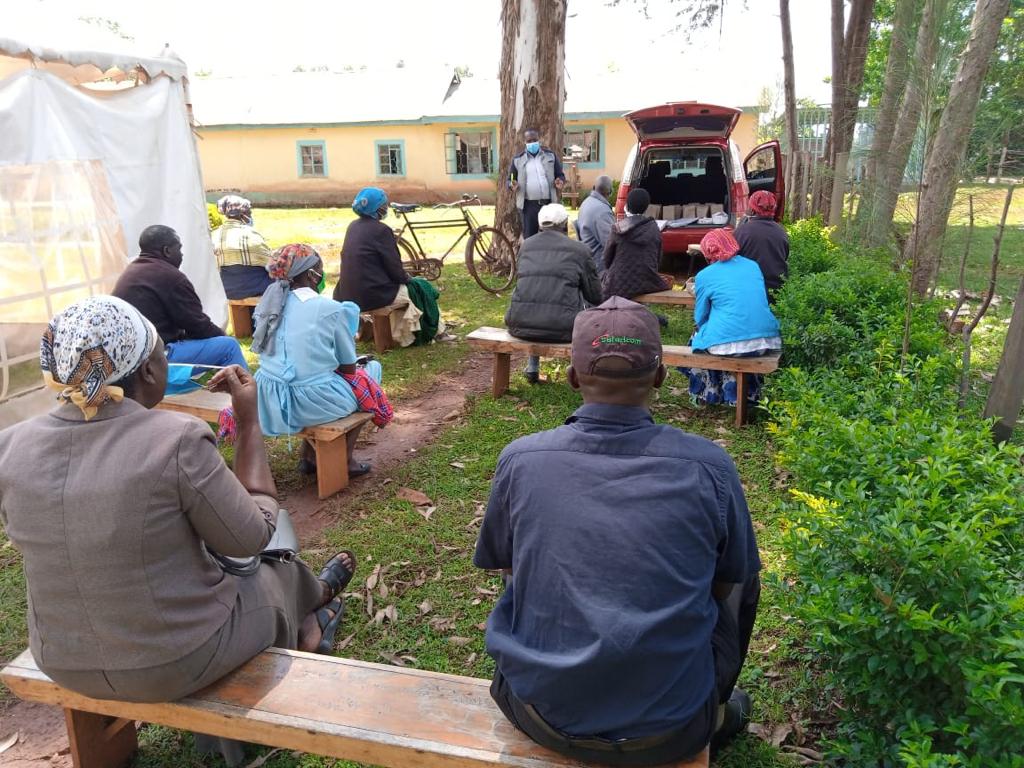

 The Purdue College of Pharmacy is pleased to honor and recognize the outstanding research and scholarship generated by our faculty each month. This month we highlight Dr. Sonak Pastakia, Professor of Pharmacy Practice, and Dr. Rakhi Karwa, Clinical Associate Professor of Clinical Pharmacy, for their recent publication, “Community-based medication delivery program for antihypertensive medications improves adherence and reduces blood pressure.” It can be read in PLoS One (September, 2022; https://pubmed.ncbi.nlm.nih.gov/36084087/).
The Purdue College of Pharmacy is pleased to honor and recognize the outstanding research and scholarship generated by our faculty each month. This month we highlight Dr. Sonak Pastakia, Professor of Pharmacy Practice, and Dr. Rakhi Karwa, Clinical Associate Professor of Clinical Pharmacy, for their recent publication, “Community-based medication delivery program for antihypertensive medications improves adherence and reduces blood pressure.” It can be read in PLoS One (September, 2022; https://pubmed.ncbi.nlm.nih.gov/36084087/).
Non-adherence to antihypertensive medications is a major cause of uncontrolled hypertension, which can lead to cardiovascular morbidity and mortality. One factor driving non-adherence, especially in low- and middle- income country settings like Kenya, is lack of consistent access to essential medications.
This study, conducted in western Kenya as part of the Purdue-Kenya Partnership, looked at whether a pilot community medication delivery program, coupled with blood pressure monitoring, would improve adherence to antihypertensive medications.
Between September 2019 and March 2020, patients who received care for hypertension from the group’s chronic disease management program also received community-based delivery of antihypertensive medications. Pastakia, Karwa, et. al., calculated the number of days during which each patient had possession of medications, then analyzed the relationship between successful medication delivery and self-reported medication adherence and blood pressure.
Systolic blood pressure reduction and self-reported medication adherence were improved among individuals who received medication deliveries, compared to those who did not.
Pastakia said Kenya was a fitting location for the study because Purdue is part of an already trusted chronic disease management program there. Additionally, medication access is a major challenge for residents because of the time and resources it requires to get to the nearest city with a pharmacy.
“Many Kenyans can’t afford the travel or the cost of the visit to access medications,” he said. “In the case of the community where our program resides, residents are approximately two hours from the nearest major city. By the time they make the trip to the city, they might only be able to afford medications for a short time. With the community-based delivery model, they call, make a payment on the medications, then they receive not only a delivery, but health counseling.”
Additionally, hypertension is a high-prevalence issue in Kenya, but patients often forego medication in favor of directing their resources elsewhere, Pastakia said.
“With little money, and many unmet basic needs, people tend to ignore hypertension,” he said. “But hypertension is a silent killer.”
Through this study, researchers found a community medication delivery program in western Kenya was not only implementable, but it enhanced access to medication, reduced systolic blood pressure, and significantly improved self-reported medication adherence. The program continues in Kenya today as a routinely available modality of care and was instrumental in addressing many of the medication access issues.
Now, Pastakia and Karwa are bringing similar health equity models to the United States.
Through their work with the Center for Health Equity and Innovation, or CHEqI, Pastakia and Karwa are working alongside colleagues to address Indianapolis-area populations that are historically underserved when it comes to healthcare.
“Many times, what we see is that people want healthcare, but they have access barriers,” Karwa said. “Just like with the community-based medication delivery program in Kenya, CHEqI is reaching communities with the care they need and want in a fashion that is more accessible.”
She and Pastakia, along with their colleagues, continue to seek funding and collaborators to scale these and other health-equity initiatives in sustainable ways.
This research was conducted by Karwa and Pastakia; Dan N. Tran, first author; and collaborators Kibet Kangogo, James A Amisi, James Kamadi, Benson Kiragu, Jeremiah Laktabai, Imran N Manji, Benson Njunga, Daria Szkwarko, Kun Qian, and Rajesh Vedanthan.
Initial seed funding was received from the Gloria Niemeyer Francke Pharmacy Practice Advancement Program

